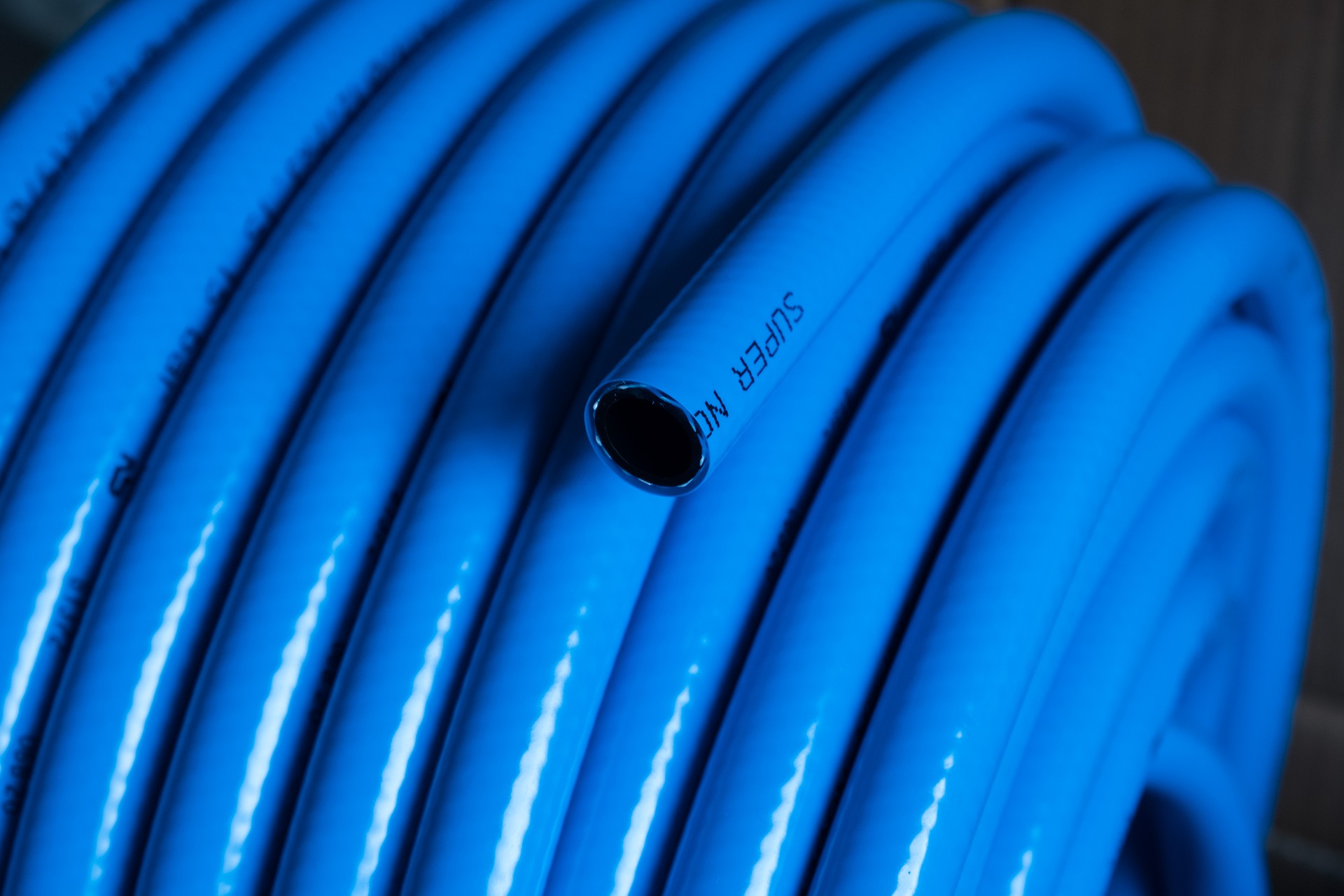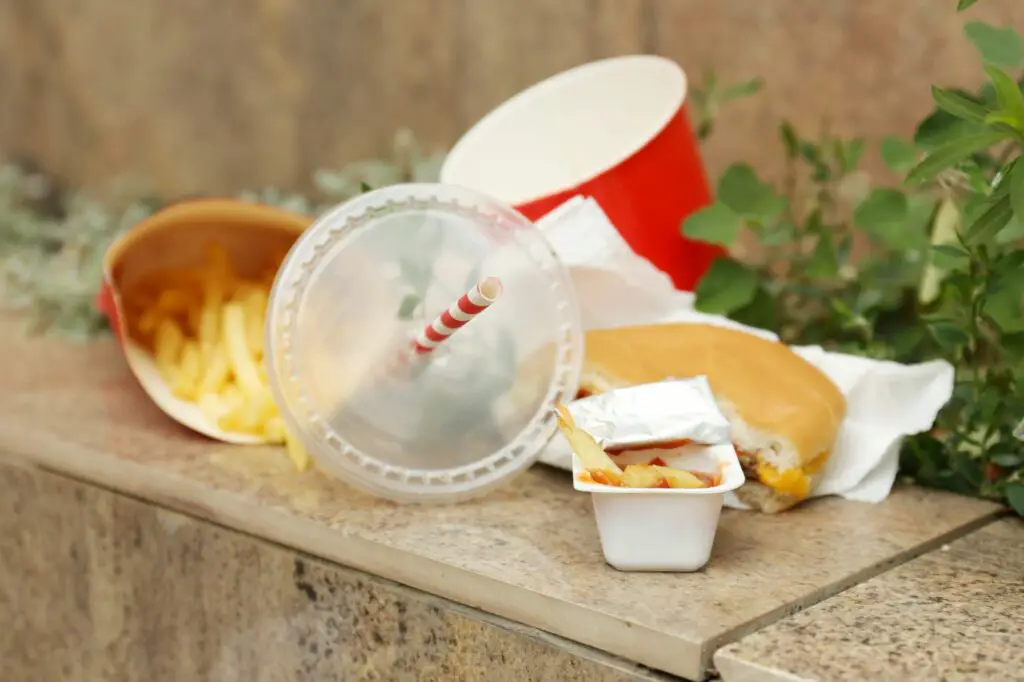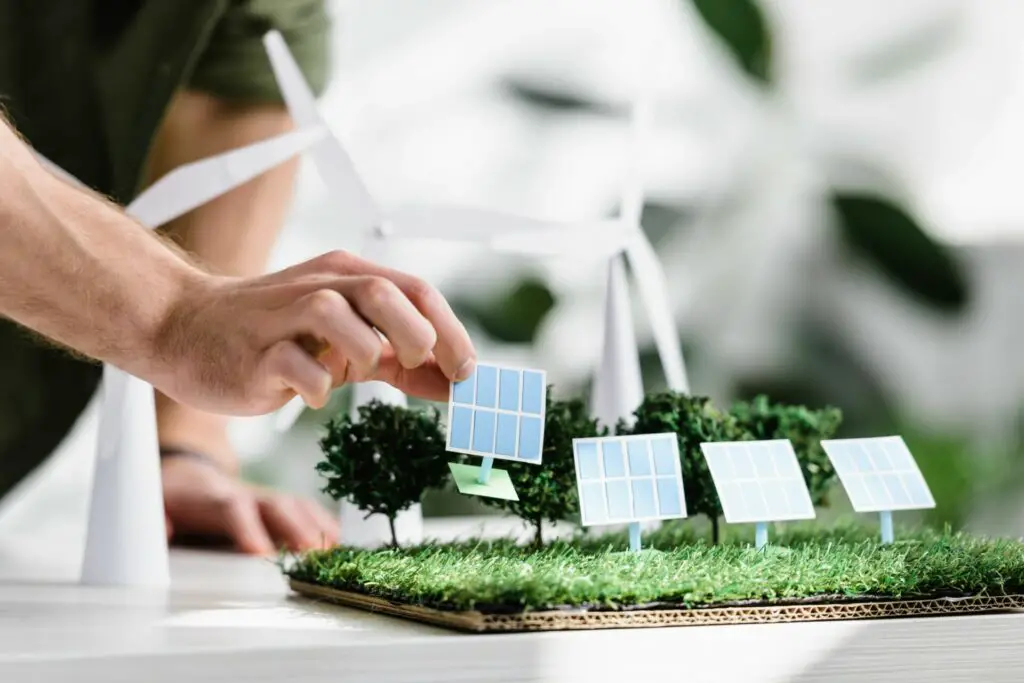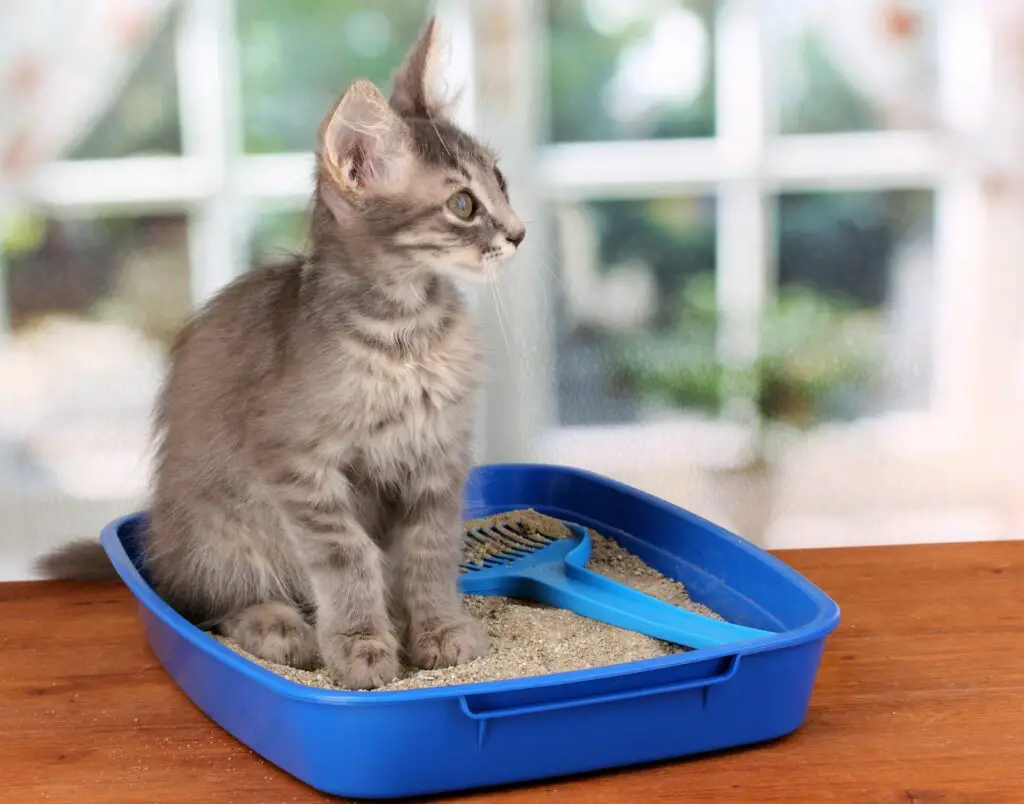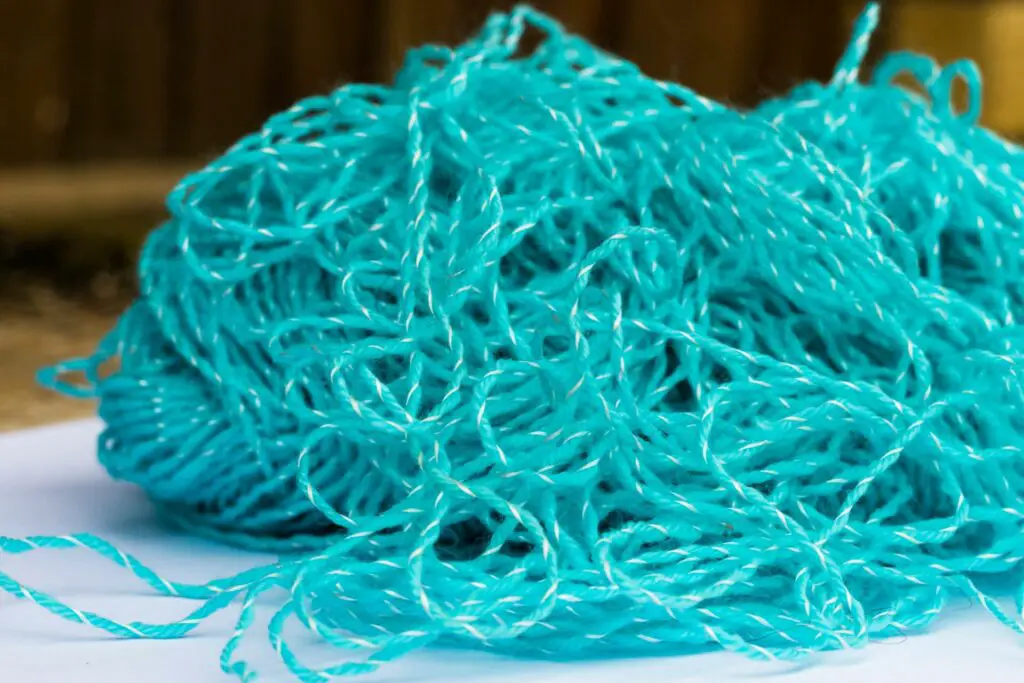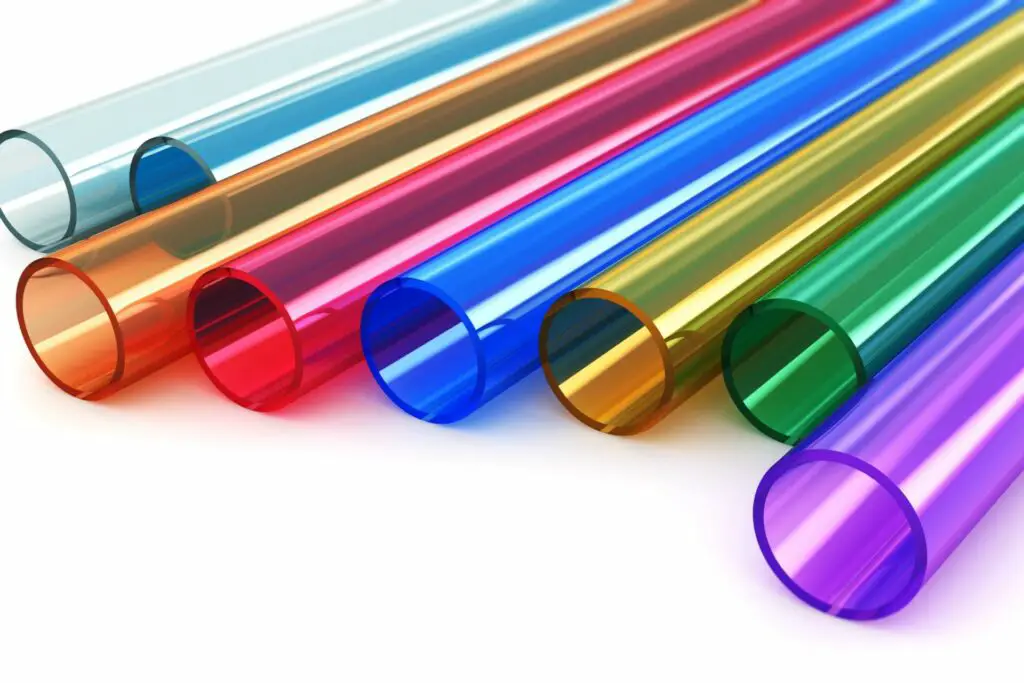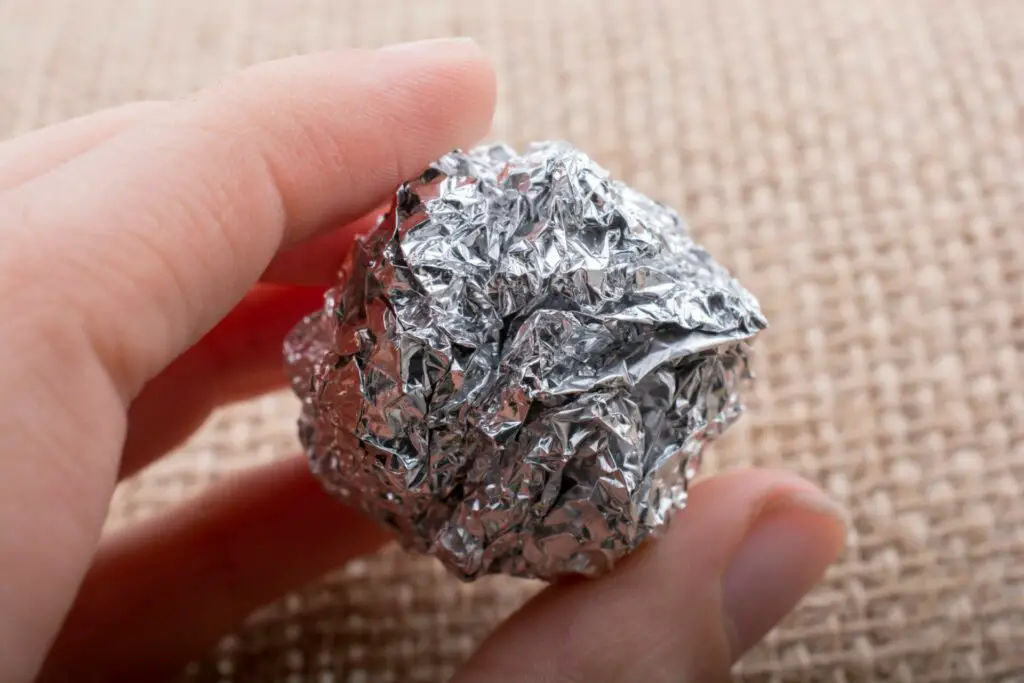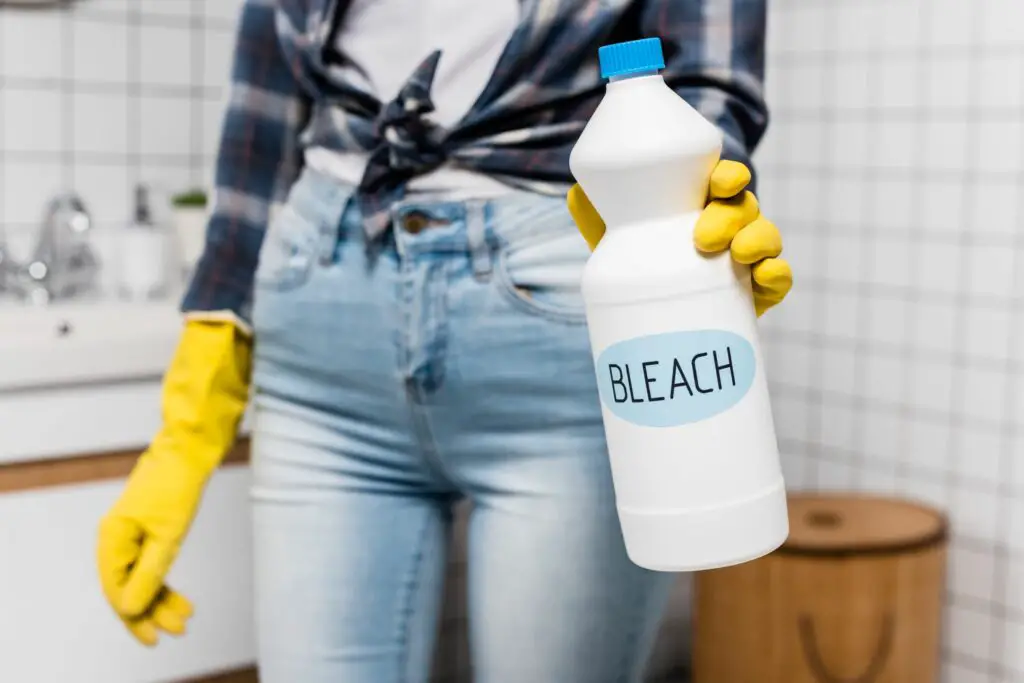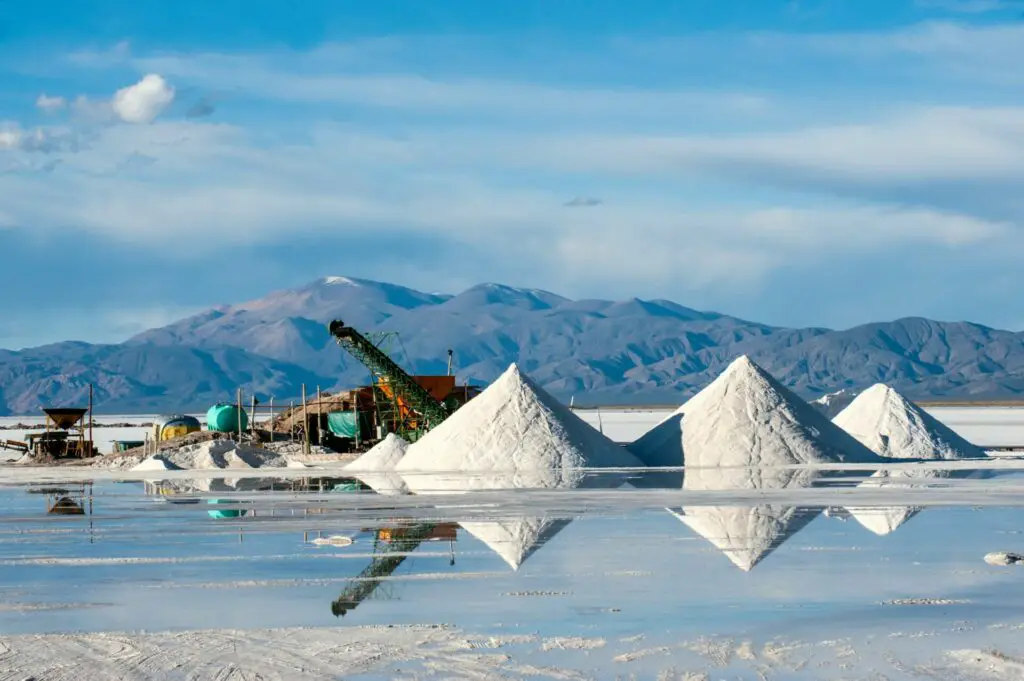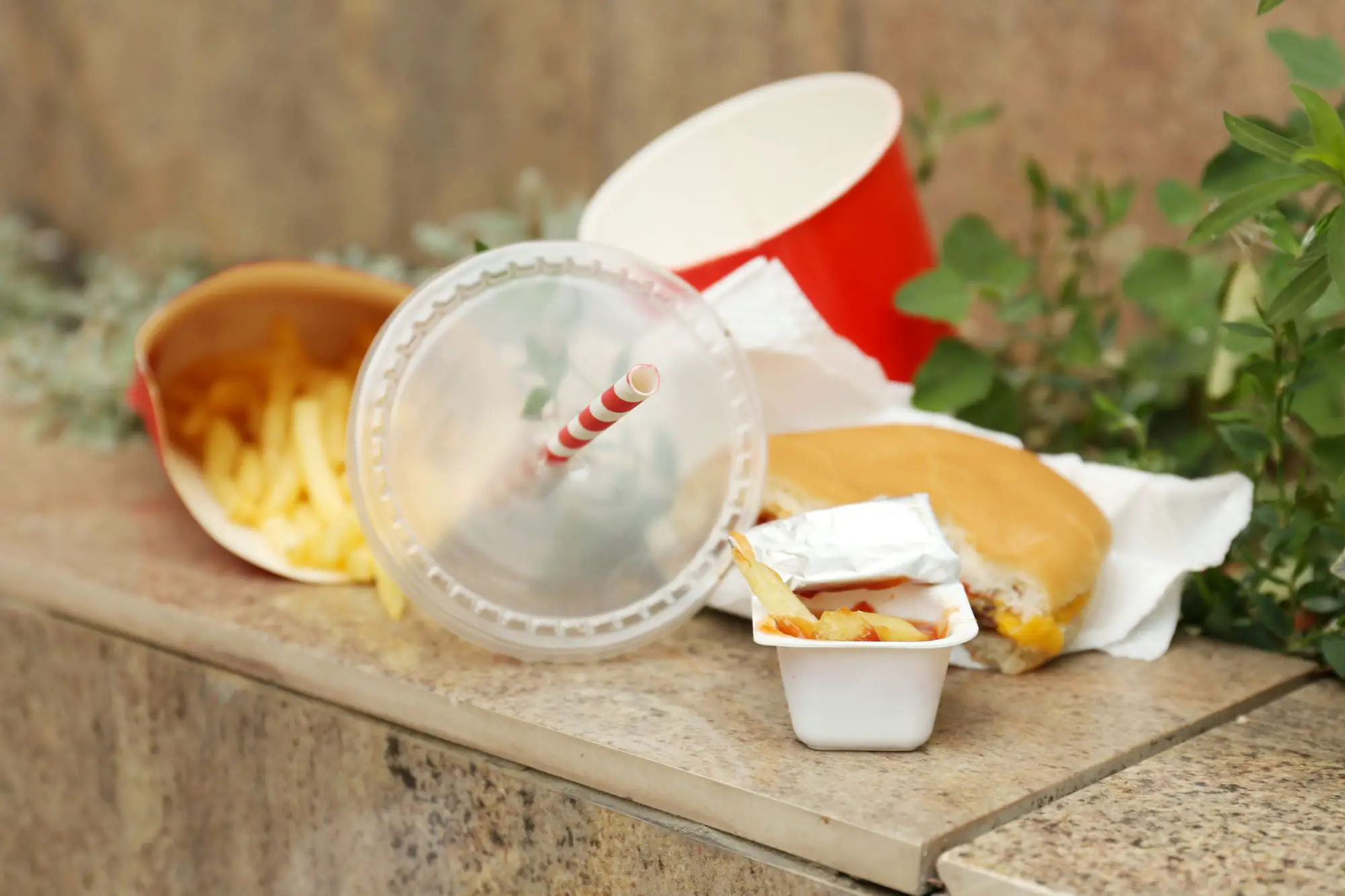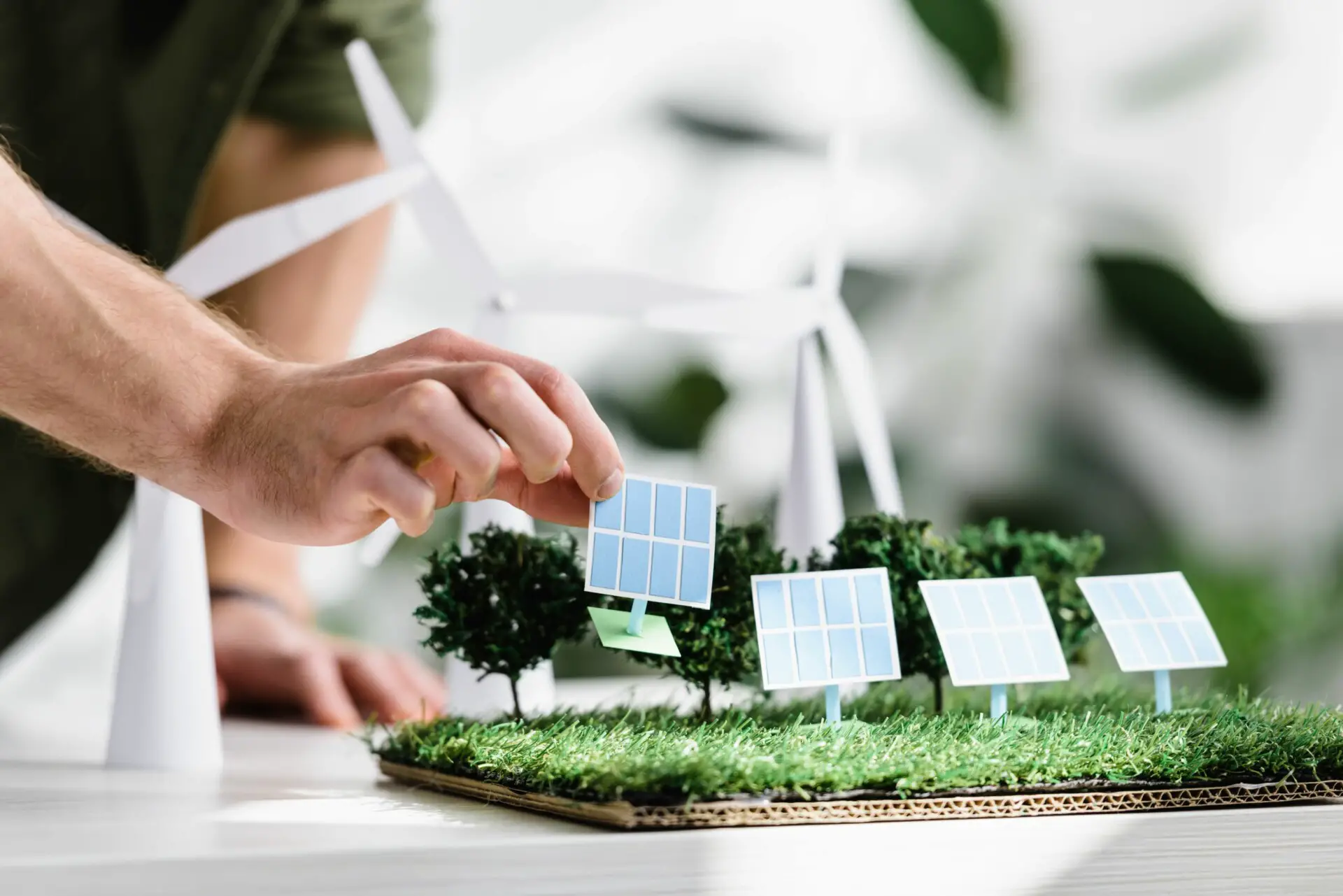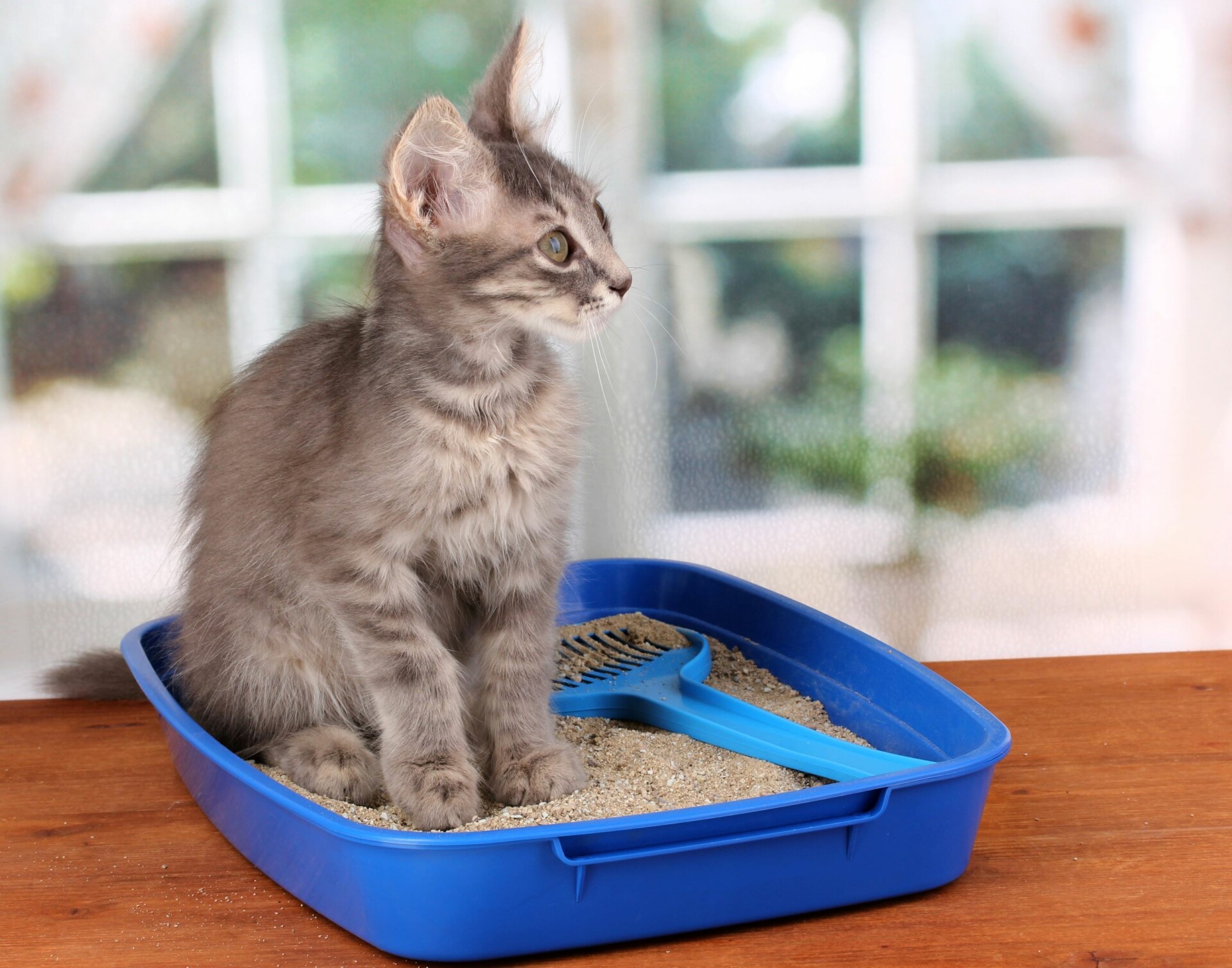Vinyl is known as the world’s most versatile plastic.
From it’s discovery in the early 1920s, there have been new products made from vinyl in every decade since.
Increased uses for vinyl means new ways to process it have increased as well, raising concerns about the eco-friendliness of it.
Those concerns are valid, because vinyl is a synthetic material and is not very eco-friendly at all.
In this article, we’ll explore how vinyl is made, what it is used for, and why it is not an eco-friendly material.
How Is Vinyl Made?
Vinyl is a synthetic product that is relatively simple in terms of how it is made.
It consists mainly of two ingredients: ethylene and chloride. The ethylene used to create vinyl comes from crude oil, while chloride comes from salt.
Ethylene and chloride are combined to create ethylene dichloride, which then undergoes further reactions to create what is called polyvinyl chloride resin, otherwise known as vinyl.
Pure vinyl resin is white, but this resin can be processed in different ways to create different products.
For example, sometimes chemicals are added to give it different textures or make it more elastic.
Some of the products made from vinyl include inflatables, children’s toys, records, and electrical and building components, among others.
There are hundreds of other products that can be created using vinyl as well.
It is so popular that North America produces over 14 billion pounds of vinyl per year.
Is Vinyl Plastic/PVC?
One of the main ingredients used to create vinyl is a derivative of crude oil.
Most plastics are made of crude oil as well and undergo similar processing.
That means that vinyl is a type of plastic.
The specific name for plastic vinyl is polyvinyl chloride, named for the chemicals it contains as well as the polymerization reaction that it undergoes to create it.
The abbreviation for polyvinyl chloride is PVC. So anytime you see plastic that is labeled as PVC (e.g. PVC pipe), vinyl is what you’re looking at.
Is Vinyl Rubber?
In some forms, vinyl can have a feel that is similar to rubber, which is why they are both used for similar products such as floor mats and rain boots.
But vinyl and rubber are actually very different in terms of chemical makeup and how they’re made.
For starters, the biggest difference is that most rubber is a plant-based, natural product while vinyl is a synthetic product.
Other differences between the two include affordability and durability, which often influence our decision in terms of which material to purchase.
In the floor mat and rain boot examples mentioned earlier, rubber versions are more durable and as a result, more expensive.
Vinyl products tend to be cheaper but less durable than the same products made of rubber.
However, vinyl has the advantage of being more resistant to chemicals, as well as coming in more colors and styles than rubber does.
Is Vinyl Eco Friendly?
Now that we have some background information about what vinyl is, we can decide whether or not it is eco-friendly.
The answer is no, vinyl is not eco-friendly.
This is because it is derived from crude oil and undergoes a lot of processing in order to be created in a useful way.
Collecting crude oil, refining it, and processing it all create the potential for pollution and other environmental hazards which can cause harm to people and animals as well.
There is no part of the creation of vinyl that is eco-friendly.
Is Vinyl Sustainable?
Vinyl is also not sustainable since it is partly made from crude oil.
Sustainability means avoiding the depletion of natural resources to help maintain ecological balance.
Crude oil is a natural resource, but it is a non-renewable resource, which means that crude oil supplies will eventually run out if we keep collecting them.
It can’t be replenished in the same way that plants, water, and other natural resources can.
Is Vinyl Biodegradable?
Vinyl is not biodegradable since it is made from plastic.
Some types of plastic do biodegrade under certain conditions, but that can take several hundred years.
But even if vinyl does biodegrade, it could release harmful chemicals used for processing it into the environment when it does.
Is Vinyl Compostable?
Vinyl is also not compostable. It can not be broken down as compost since it is not biodegradable.
But, even if it was compostable it would release harmful chemicals into your compost which would make the compost unhealthy to use for other purposes.
Is Vinyl Organic?
The term organic usually refers to plant-based products that were grown without the use of chemicals.
Since vinyl is made using chemicals and it is not plant-based, it can not be considered organic.
Is Vinyl Toxic?
Vinyl is considered to be the plastic that is the most toxic to both human and environmental health.
Production, use, and disposal of vinyl has the potential to release chemicals like ethylene dichloride, mercury, and polychlorinated biphenyls (PCBs) into the environment.
These chemicals have been linked to cancer and birth defects and can cause soil, air, and water pollution.
That’s why it is so important to limit its use and not try to let it biodegrade or compost it.
Is Vinyl Flammable?
Surprisingly, vinyl is less flammable than other types of plastic. It is slow to ignite and won’t continue to burn if the heat source is removed.
This is due to the large percentage of chlorine that makes up the composition of vinyl.
Chlorine is not flammable by itself, but can sometimes be flammable when combined with other chemicals.
However, chlorine does not form flammable compounds when combined with ethylene to make vinyl.
But if vinyl is left exposed to a flame, it will eventually burn which could release toxic chlorine gas into the air.
Can Vinyl Be Recycled?
Vinyl can be recycled and is identified by the number 3 inside the recycling symbol.
But, vinyl can be more difficult to recycle than other types of plastic because breaking it down by using heat can release toxic chlorine gas.
Because of this, not all recycling centers will accept vinyl as a recyclable material.
Most vinyl materials have to be taken to a special vinyl recycling facility which will recycle it in one of two ways:
- Mechanical recycling grinds vinyl into a powder to be used for new products. But it does not remove toxic materials from the vinyl.
- Chemical recycling vinyl is more expensive than mechanical recycling. But, it can remove chlorine and toxins from the vinyl.
One of the benefits resulting from the difficulties of recycling vinyl is that it is leading the way for less usage of vinyl as well as more research for more eco-friendly vinyl.
How To Dispose Of Vinyl Properly
Not everyone has the ability to recycle vinyl, so there aren’t many other disposal options out there.
Some vinyl products like records can be given away to others who can use them as long as they are still in good condition.
Unused crafting vinyl or building materials could also be donated to be reused.
But if it’s not possible to recycle or reuse vinyl, the only other way to dispose of it is to throw it away.
Yes, it will sit in a landfill, but there aren’t many options except to limit your use of vinyl in the future.
Is Vinyl Better Than Laminate?
One of the uses for vinyl that we haven’t mentioned yet is for flooring.
When deciding on flooring for their home, many people wonder if vinyl is a better choice than laminate.
If you want your floors to be more water resistant, durable, and last longer, then the answer is yes. Vinyl is better than laminate.
However, because it is longer lasting than laminate, vinyl flooring is also more expensive.
But, vinyl is not eco-friendly, whereas laminate flooring is.
If you’re looking for which type of flooring is better in terms of installation and maintenance, both vinyl and laminate are pretty equal.
However, for the more eco-friendly choice, laminate is the way to go.
Is Vinyl Linoleum?
Another type of flooring option is linoleum. Vinyl and linoleum are pretty similar in terms of resiliency, so many people wonder if they are the same thing.
As it turns out, vinyl and linoleum are not the same thing.
Vinyl flooring is a synthetic material, while linoleum is made from natural materials.
The term linoleum comes from the fact that it is made from linseed oil, but it also contains other materials like pine rosin, limestone, and jute.
As we’ve learned so far, vinyl contains toxic chemicals in addition to being made from crude oil.
So while the two types of flooring are similar in terms of durability, they are the opposite when it comes to eco-friendliness.
3 Eco Friendly Alternatives To Vinyl
Finding eco-friendly alternatives to vinyl just depends on what vinyl products you are purchasing.
Some products don’t have an eco-friendly alternative that is as functional as vinyl, so trying to use products made from recycled vinyl is the best choice.
But one of the easiest areas to switch to an eco-friendly alternative to vinyl is in the home.
Vinyl wallpaper and flooring are two commonly used items inside the home, and there are other products that are used inside the home that could be made from eco-friendly alternatives to vinyl as well.
1. Natural Wallpaper
Instead of using wallpaper made from vinyl, switch to a more eco-friendly option made from natural materials.
Options for natural wallpaper materials include grasscloth, sisal, and even cork.
2. Natural Flooring
We’ve already mentioned linoleum as an eco-friendly flooring alternative to vinyl, but there are other great options as well.
Cork, bamboo, and natural and reclaimed hardwood floors are all great alternatives to vinyl that can create beautiful and durable floors.
3. Rubber
We previously mentioned that in some cases, rubber and vinyl can have similar uses.
Products like floor mats, rain boots, and cable insulation that vinyl is used for were generally made of rubber first.
Although rubber is more expensive, it may be beneficial to switch back to rubber versions of these products if you want to be more eco-friendly (and longer-lasting as well).
As long as the product is made of natural rubber, it is more eco-friendly than vinyl.
Conclusion
Vinyl is the most versatile plastic out there, but it is also one of the least eco-friendly.
This is due to being derived from crude oil and having so many ways that it can be processed.
It can be recycled, however this is sometimes difficult and expensive to do.
It’s best to seek more eco-friendly options to vinyl where possible to cut down on the use of this toxic plastic.
You Might Also Like…
- Is Fast Food Bad for the Environment? (& What You Can Do)
- Is Fabric Softener Bad for the Environment? (+5 Eco-Friendly Options)
- Is Fuel Dumping Bad for the Environment? (& How Often It Happens)
- Is Electricity Generation Bad for the Environment? (What You Should Know)
- Is Dry Cleaning Bad for the Environment? (4 Surprising Facts)
- Is Diamond Mining Bad for the Environment? (Important Facts)
- Is DEET Bad for the Environment? 4 Effects (You Should Know)
- Is Cat Litter Bad for the Environment? (5 Common Questions)
- Is Burning Cardboard Bad for the Environment? (6 Facts)
- Is Burning Paper Bad for the Environment? (6 Surprising Facts)
- Is Burning Leaves Bad for the Environment? (7 Quick Facts)
- 4 Natural Cleaners for Quartz Countertops
- 6 Eco-Friendly Acrylic Paint Brands (For Sustainable Artists)
- 5 Eco-friendly Alternatives to Acrylic Paint (& How to Make Them)
- Is Acrylic Paint Bad for the Environment? (7 Quick Facts)
- Is Acrylic Yarn Bad for the Environment? 8 Crucial Facts
- Is Acrylic Bad for the Environment? (8 Quick Facts)
- Is Aluminum Foil Bad for the Environment? 7 Quick Facts
- Is Bleach Bad for the Environment? 6 Crucial Facts
- Is Lithium Mining Bad for the Environment? 6 Crucial Facts

